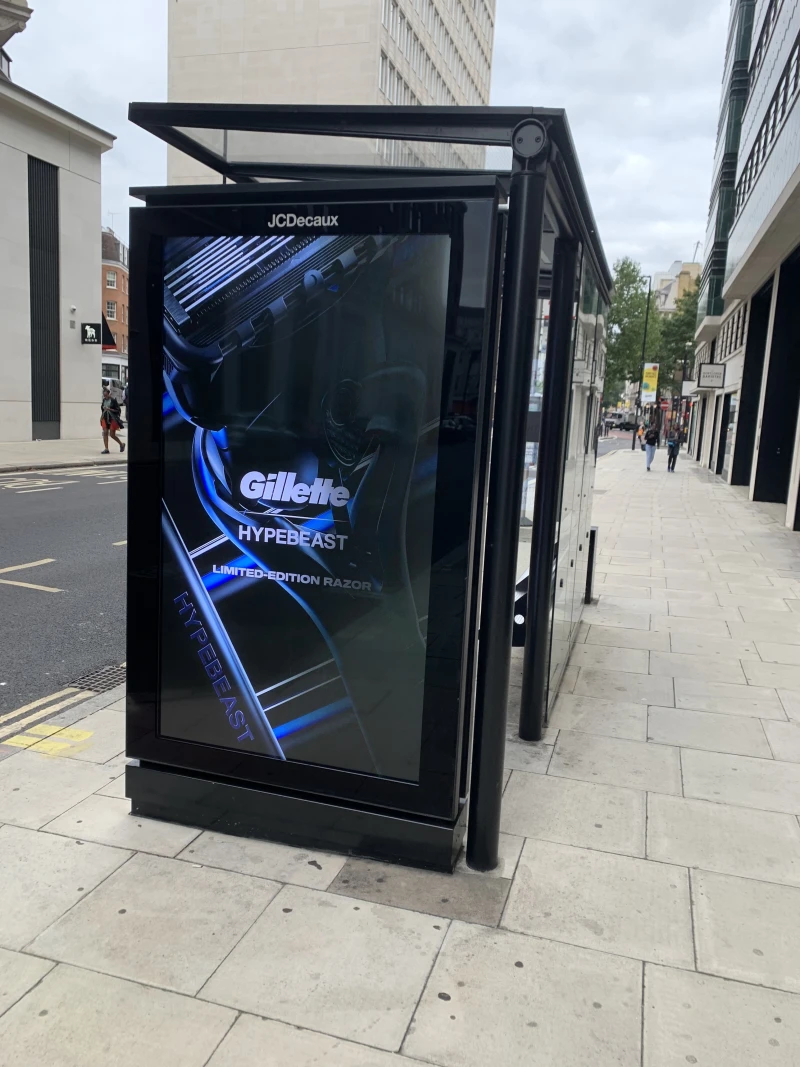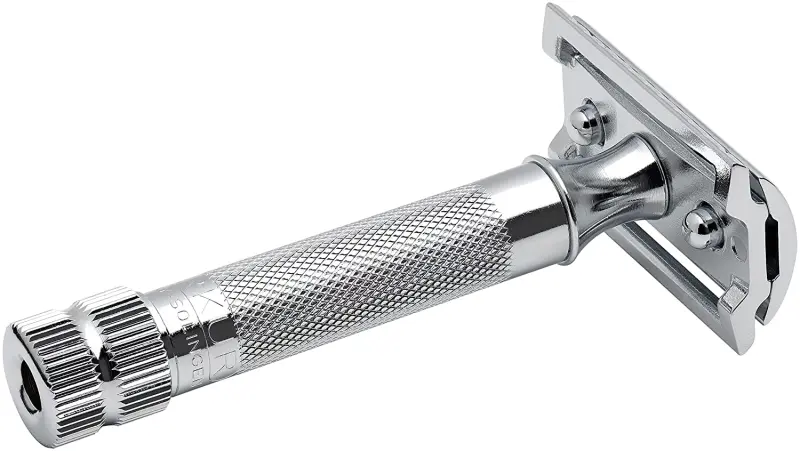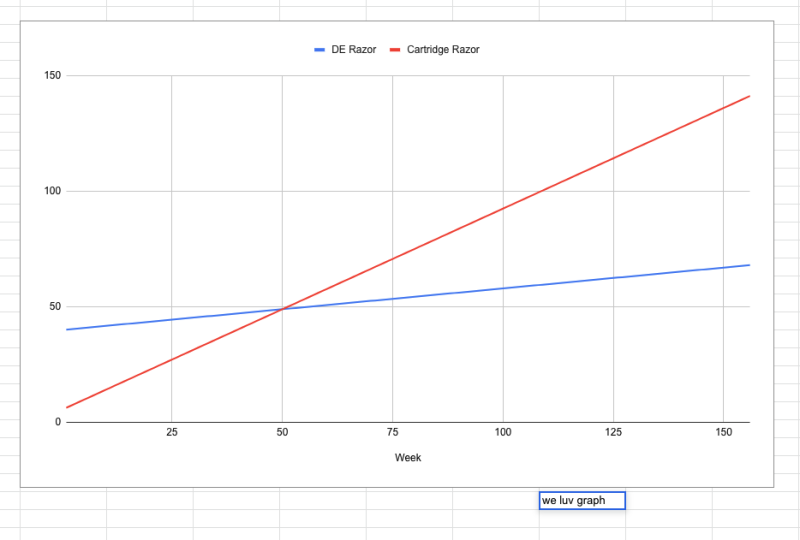Shaving is too expensive
Shaving is too expensive and is a demonstrative example of how most consumer products are designed to extract more money from you rather than to improve your life, or the world, or to be in any way remotely good.
The razors most people use where I live look like this:

A set including the razor body and some heads generally costs a little above £201 and replacement heads cost in the region of £1.75. Gillette claim that each blade can be used for 15 shaves. This sounds pretty optimistic to me. But who knows. If you shave daily this implies a cost of 87 pence weekly, or around 45 pounds annually. This also means that the razor body effectively costs about 5 pounds, and is probably a loss leader.

Before this style of razor became popular, most people used what is known as a double edged razor. The bodies of these razors seem to be generally more expensive: a good quality one might be around £40. Though you can pay more, or less. The blades are significantly much cheaper. Blades can be had for £0.08 pence each. These blades are probably good for something like 3 to 5 shaves. Let's say 3 to make this as generous to gilette as possible. Assuming daily shaving that gives us a cost of 18 pence weekly, or about 10 pounds annually.

So we see a slightly larger initial outset, which is quickly dominated by the higher ongoing cost of the typical modern razor. If you expect that you will continue shaving for a year, then it is more cost effective to use a double edged razor.

So the double edged razor is cheaper. Clearly. There are other obvious benefits of this style of razor. They produce dramatically less waste. Depending on the brand you purchase, the blades might just be packaged in waxed paper. Cartridge blades on the other hand come packaged in multiple layers of plastic, and are deliberately over packaged so that they are more visible in shops. Changing to double edged razors means a big reduction in single use plastic consumption - which is something people claim to care about.
It is, however, hard to find these sorts of razors. If you go into a shop to buy a razor, you will almost certainly not be able to buy one - but you will be faced with a wide range of very similar cartridge razors. The double edged razor has become a product that you can only buy on the internet, and which you will only buy if you know that it exists.
So, does this matter? I assume that for most of the people reading this, the sums of money involved may seem pretty trivial. But I think the changes in the razor market are obviously bad, and reflect similar changes that can be seen in many other markets. We see new products launched which promise minor benefits in convenience, and which crowd out older, cheaper, and better products. Those older products are deliberately marginalised, and more money is captured from consumers without them really gaining any value from their expenditure.
It is good to build the habit of skepticism in the face of consumer products. By avoiding products, like cartridge razors, you are producing less waste, saving money which you can dedicate to any purpose that is important to you, and I think that not doing the thing that the market wants you to do is probably just good.
Other examples of products that seem to exhibit a similar trend, where purported convenience leads to higher prices
- Cooking equipment: essentially indestructible Cast Iron skillets transition into teflon pans. The newer pans perform worse, and must be replaced on a shockingly regular basis. They also seem to be poisonous.
- Shaving foam: soap pucks transition to self foaming aerosol canisters
- Tea bags replace loose leaf tea. Allows for lower quality tea to be sold, diminishes the re-use of tea leaves. Also ludicrous product differentiation along the lines of 'we have a special shaped tea bag'.
- Nespresso machines, and other coffee pod brands, replace many styles of coffee brewing. Provide much worse coffee, at a higher price but are superficially convenient.
- Well understood mechanical bike shifting transitions to electronic shifting which requires you to pay more and charge your pedal bike (Not sure about this example, as in theory a bike derailleur needs not be a repeated purchased)
- Televisions moving from being screens which accept input, to self contained 'smart' devices that require software updates and thus have a shortened useful lifespan.
- In many inner city shops it is now hard to buy an individual piece of fruit.
- Subscription services like Hello Fresh, where you can pay well over the odds to have some vegetables delivered to you.
I don't want to suggest that all new product developments are essentially hostile to you, but certainly a lot of them are. Pay attention to what you buy, especially when you are changing from an old well understood product to a new, more convenient, equivalent. The world is not your friend.
1 This gillette set is the top result for razor on amazon at time of writing, and costs 23.75